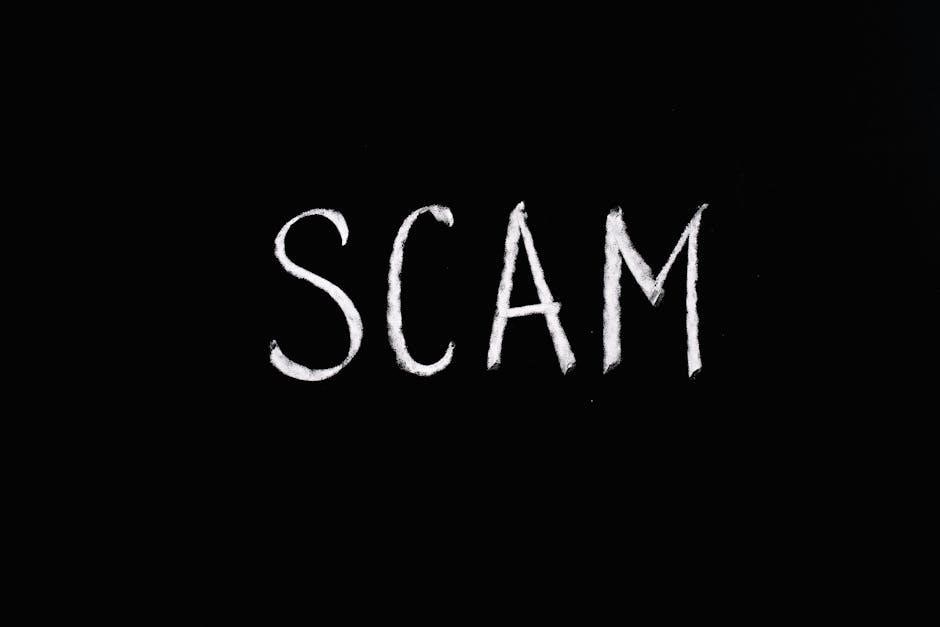
Survivor Type is a chilling short story by Stephen King‚ first published in the 1982 anthology Terrors. It follows the harrowing tale of Richard Pine‚ a disgraced surgeon stranded on a remote island‚ documenting his descent into madness as he fights to survive. The story explores themes of isolation‚ desperation‚ and the extremes of human endurance‚ showcasing King’s mastery of psychological horror through its epistolary format and vivid narrative.
Overview of the Story
Survivor Type by Stephen King tells the harrowing tale of Richard Pine‚ a disgraced surgeon who becomes stranded on a remote Pacific island after a heroin-smuggling attempt gone wrong. Through diary entries‚ Pine documents his desperate struggle to survive‚ resorting to extreme measures like self-amputation and cannibalism; The story explores his physical and mental deterioration‚ revealing the darker aspects of human resilience and the psychological horrors of isolation.
Historical Context and Background
Survivor Type was first published in 1982 within the anthology Terrors‚ edited by Charles L. Grant‚ showcasing horror from prominent authors. The story reflects King’s exploration of psychological horror and extreme survival scenarios‚ resonating with themes of isolation and human endurance prevalent in 1980s literature. Its inclusion in Skeleton Crew (1985) solidified its place in King’s body of work‚ highlighting his ability to craft unsettling narratives that probe the darkest corners of human nature.

Author Background: Stephen King
Stephen King is a renowned horror writer. His short story Survivor Type‚ published in 1982‚ exemplifies his mastery of psychological horror and extreme survival themes.
Stephen King’s Writing Style
Stephen King’s writing in Survivor Type showcases his mastery of psychological horror through vivid descriptions and a first-person narrative. The epistolary format‚ consisting of diary entries‚ intensifies the sense of isolation and desperation. King’s use of rhetorical questions and stream of consciousness heightens the tension‚ immersing readers in Richard Pine’s deteriorating mental state. This style effectively explores the darker aspects of human nature and survival instincts.
King’s Influence on the Horror Genre
Stephen King’s Survivor Type exemplifies his profound influence on horror‚ pushing boundaries with graphic and psychological terror. The story’s unflinching portrayal of human decay and desperation has inspired countless writers and solidified King’s reputation as a horror icon. His ability to blend psychological complexity with visceral horror continues to shape the genre‚ leaving an indelible mark on contemporary horror literature and popular culture.

Main Character: Richard Pine
Richard Pine is a disgraced surgeon and the protagonist of Survivor Type‚ whose harrowing journey on a deserted island reveals his resilience and ultimate psychological unraveling.
Character Analysis: Richard Pine
Richard Pine‚ a disgraced surgeon‚ is the protagonist of Survivor Type. His diary entries reveal a man driven by desperation‚ resourcefulness‚ and eventual madness. Initially confident in his ability to survive‚ Pine’s mental state deteriorates rapidly due to isolation and starvation. His actions‚ including self-amputation‚ highlight his horrifying descent into psychological unraveling‚ showcasing a complex mix of resilience and terror in the face of extreme adversity.
Physical and Mental Deterioration
Richard Pine’s physical and mental state rapidly decline as starvation and isolation take hold. His diary entries become increasingly disjointed‚ reflecting his spiraling insanity. The amputation of his foot and subsequent consumption of his own flesh illustrate his desperation and loss of humanity. The heroin he uses for anesthesia further accelerates his mental decay‚ leading to a shocking descent into madness‚ where survival instinct overshadows all rational thought and morality.

Themes in Survivor Type
Survivor Type explores themes of survival‚ human resilience‚ and psychological horror‚ delving into the darker aspects of isolation and desperation‚ showcasing the extremes of human endurance.
Survival and Human Resilience
Survivor Type delves into the extreme measures humans undertake to survive‚ as Richard Pine endures isolation‚ starvation‚ and psychological decay. His actions‚ from amputating limbs to consuming heroin for anesthesia‚ reveal the darkest corners of resilience. The story explores how desperation pushes individuals to unimaginable acts‚ questioning the limits of human endurance and the true cost of survival in the face of unimaginable adversity.
Psychological Horror Elements
Survivor Type masterfully employs psychological horror through Richard Pine’s unraveling mind. His diary entries reveal escalating madness‚ as isolation‚ starvation‚ and drug use erode his sanity. The narrative’s stream of consciousness and rhetorical questions intensify the sense of despair and dread‚ making the reader witness Pine’s mental disintegration. King’s portrayal of psychological decay transforms the island into a prison of Pine’s own fractured psyche‚ heightening the story’s chilling impact.

Narrative Style and Structure
Survivor Type is presented as a diary‚ using an epistolary format to create psychological tension. King employs stream of consciousness and rhetorical questions‚ immersing readers in Richard Pine’s madness.
Epistolary Format and Diary Entries
Survivor Type is told through Richard Pine’s diary entries‚ creating an intimate and immediate narrative. The epistolary format allows readers to witness Pine’s psychological unraveling firsthand‚ enhancing the story’s tension and realism. King’s use of this style immerses the audience in Pine’s desperate struggle‚ making his shocking actions feel disturbingly personal and inevitable.
Stream of Consciousness and Rhetorical Devices
King employs a stream of consciousness narrative in Survivor Type‚ mirroring Richard Pine’s fractured mind. The diary entries’ raw‚ unfiltered nature intensifies the story’s realism and psychological depth. Rhetorical questions and vivid imagery are used to heighten tension‚ while Pine’s dark humor and grim reflections underscore his desperation. These devices masterfully convey his unraveling sanity and the grotesque lengths he goes to survive‚ immersing readers in his nightmarish reality.

Publication History
Survivor Type was first published in the 1982 anthology Terrors‚ edited by Charles L. Grant. It later appeared in Stephen King’s 1985 collection Skeleton Crew.
First Publication in Terrors Anthology
Survivor Type was first published in the 1982 anthology Terrors‚ edited by Charles L. Grant. This collection of 18 horror stories showcased works by various emerging writers in the genre. King’s tale of a surgeon stranded on a Pacific island debuted here‚ introducing readers to the graphic and psychological horror that would become a hallmark of his writing. This publication marked its official entry into King’s literary canon.
Inclusion in Skeleton Crew Collection
Survivor Type was included in Stephen King’s 1985 short story collection Skeleton Crew. This anthology showcased King’s mastery of horror and suspense‚ with Survivor Type standing out for its graphic and psychological intensity. The story’s themes of survival and human resilience resonated with readers‚ solidifying its place as a standout piece in King’s oeuvre and further cementing his reputation as a horror maestro.

Adaptations and Interpretations
Survivor Type has been adapted into a radio drama and a graphic novel‚ further engaging audiences and showcasing its enduring appeal and horror elements effectively worldwide.
Radio Drama Adaptation
A radio drama adaptation of Survivor Type brings the terrifying tale to life‚ with narrators like Oleg Buldakov delivering chilling performances. The audio format amplifies the isolation and horror‚ immersing listeners in Richard Pine’s desperate struggle. Available in multiple versions‚ including a 52-minute adaptation‚ the radio drama captures the story’s intense psychological depth and the grotesque lengths Pine goes to survive‚ enhancing the story’s unsettling atmosphere through sound and narration.

Graphic Novel Adaptation
The graphic novel adaptation of Survivor Type offers a visually stunning interpretation of Stephen King’s chilling story. With vivid illustrations‚ the adaptation captures the grotesque details of Richard Pine’s ordeal‚ amplifying the psychological horror. The graphic format enhances the story’s tension and visceral elements‚ providing readers with a haunting visual journey through Pine’s descent into madness and his horrifying acts of survival.

Cultural Impact and Reception
Survivor Type has left a lasting impact on horror enthusiasts‚ with its disturbing premise and intense psychological depth. Readers often cite it as one of King’s most unsettling works‚ praising its ability to evoke visceral reactions and explore the darker aspects of human nature. Its inclusion in Skeleton Crew further cemented its place in horror literature.
Reader Reactions and Reviews
Readers have consistently praised Survivor Type for its unflinching portrayal of desperation and psychological decay. Many describe it as one of King’s most disturbing works‚ with its graphic and unsettling narrative leaving a lasting impression. The story’s exploration of isolation and the extremes of human endurance resonates deeply‚ making it a standout piece in King’s body of work. Fans often recommend it as a testament to his mastery of psychological horror.
Academic Analysis and Criticism
Scholars and critics have praised Survivor Type for its unflinching exploration of psychological horror and human endurance. The story’s epistolary format and stream of consciousness narrative amplify its visceral impact‚ offering a raw‚ intimate portrayal of Richard Pine’s descent into madness. Academic discussions often highlight its themes of isolation‚ survival instincts‚ and the moral ambiguity of extreme actions‚ solidifying its place as a masterful example of King’s ability to blend horror with profound psychological insight.
Survivor Type remains a haunting testament to Stephen King’s mastery of psychological horror‚ exploring extreme survival and madness with unflinching detail‚ leaving a lasting impact on readers worldwide.
Significance of Survivor Type in King’s Oeuvre
Survivor Type stands as a significant work in Stephen King’s oeuvre‚ showcasing his mastery of psychological horror and the human condition. Its epistolary format and graphic detail highlight King’s ability to explore extreme survival‚ madness‚ and desperation. The story’s unflinching portrayal of a man’s descent into insanity solidifies its place as a haunting example of King’s skill in blending horror with profound psychological insight‚ resonating deeply with readers and critics alike.
Legacy and Continued Relevance
Survivor Type remains a haunting masterpiece‚ leaving a lasting impact on the horror genre. Its unflinching exploration of survival‚ madness‚ and human resilience continues to captivate readers and inspire new adaptations. The story’s psychological depth and graphic imagery ensure its relevance‚ making it a timeless reflection of King’s ability to explore the darkest corners of the human psyche‚ solidifying its place in horror literature.
